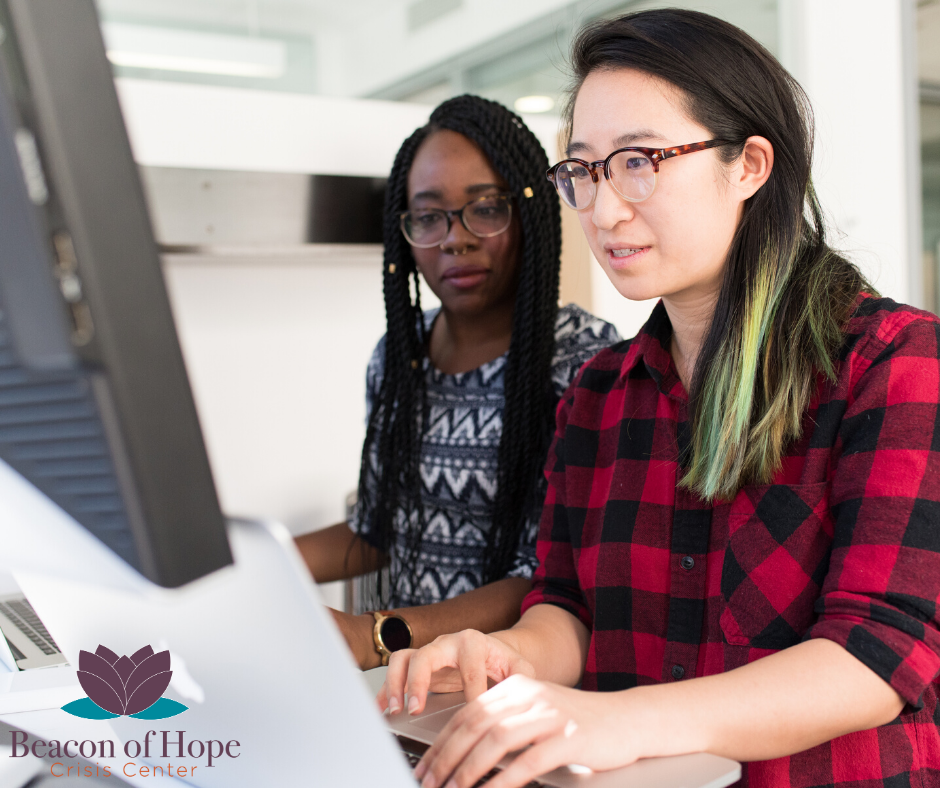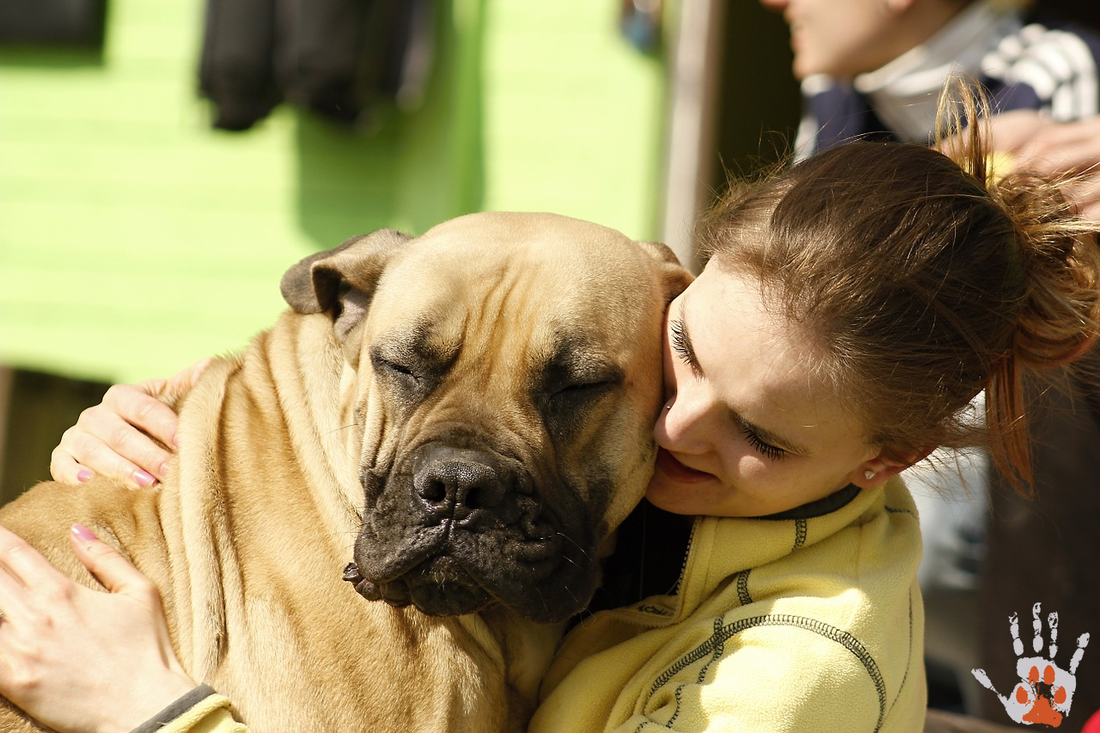|
By: Katie Schneider Domestic violence and sexual assault can cause lifelong negative impacts on a victim’s mental and physical health. Victims that are in marginalized communities face more barriers to accessing services than those who do not. A marginalized community is a group of people who for whatever reason are denied involvement in mainstream economic, political, cultural and social activities. [1] They tend to be underserved when it comes to receiving services for domestic violence and sexual assault. People who are living with trauma from domestic violence and sexual assault within these communities may be scared to turn to those that can help them (community resources or law enforcement).
Beacon of Hope Crisis Center breaks down barriers by offering services to everyone that walks through our door or calls our crisis line. We work alongside community partners to provide language services, refer clients to free legal assistance, safe housing, and much more. Training our advocates to be culturally aware and helping to make survivors feel as comfortable as possible in times of healing. Beacon of Hope Crisis Center also provides services at no cost to any of our clients. Free and completely confidential. This way there is no economic barrier to receiving services either. Our Economic Sustainability Program aims to empower survivors to become self-sufficient and financially independent after experiencing abuse. Domestic violence and sexual assault alike do not discriminate against race, gender, sexual orientation, religion, citizenship status or any other demographic. It can happen to anyone. No one deserves to live in the grip of domestic violence or sexual assault. Abuse is never the victim’s fault. Beacon of Hope Crisis Center serves ALL individuals seeking assistance after domestic violence or sexual assault victimization. Call our confidential and toll free crisis line to speak with an advocate. Crisis Line: (317) 731-6140. [1] https://yali.state.gov/five-ways-to-be-an-ally-to-marginalized-groups/ -groups/ By: Savannah Tipton Sexual assault often results in no physical injuries to the victim, but this doesn’t make their experience any less traumatic. After an assault, victims may experience significant short-term and long-term effects.
Effects of Sexual Assault:
Sexual assault is often perpetrated by someone the victim knows (acquaintance, friend, family, etc.). The majority of assaults occur at or near a victim’s home (RAINN). Many of us were taught about “stranger danger” in the past and some people may still believe that no one they know “could do something like that.” Unfortunately, we do not get to live in a world free from danger. However, together we can raise our voices to make a change. Start by believing survivors. If someone discloses they have been sexually assaulted, listen and believe them. If they disclose shortly after an assault, encourage them to get an exam done at the hospital. Sexual assault exams are done for free in Indiana and an experienced SANE nurse (Sexual Assault Nurse Examiner) can collect evidence that may not be available later on. This is also an opportunity for survivors to get medical care, testing, and ongoing support. Referring survivors to community resources is another way to help and you can encourage them to speak with a victim advocate. Victim advocates offer free support, education, and community referrals. Advocates can also answer questions about protective orders and reporting to law enforcement. Want to get more involved? Get out in the community and start volunteering! There are a variety of volunteer opportunities to help survivors near you. Volunteers opportunities generally include fundraising, events, volunteer advocacy, and more. Visit the career tab to learn more about volunteer and internship opportunities at Beacon of Hope Crisis Center. Finally, show survivors you stand with them as an ally by sharing resources, statistics, and other information from services providers. The simple act of sharing a post has the potential to reach someone who may need help. Your voice has power, use it to support survivors. #AllyToSurvivors If you or someone you know is a victim or survivor in need of services, please contact our confidential crisis line at 317-731-6140. Advocates are a confidential source of support available to help survivors. By: Marty Burtt Beacon of Hope Crisis Center’s Foster Pet Program is a unique service that we are proud to be able to offer to our clients. Family pets offer a sense of stability, comfort, and unconditional love that creates a special bond between a family and their pet. In homes with domestic violence and/or sexual assault, the family pet is at a high risk of being abused and/or neglected. Over 71% of battered women reported that their batterers had harmed, killed, or threatened animals to coerce, control, and humiliate them*. Additionally, numerous surveys have reported that 25% to 40% of battered women report they delayed their decision to seek safety out of fear for their animals’ welfare**. Our Foster Pet Program helps protect pets in homes where violence is happening by placing them in a temporary, safe home until it is safe for them to be back with their family.
Our Foster Pet Program gives victims peace of mind in knowing that their pet/s is safe. Our Foster Pet Program Coordinator (FPPC) gets weekly updates from the foster family on the pet/s and how the pet/s is doing and then provides that update to the victim. The FPPC is in consistent communication with everyone involved with the pet/s. We are always excited when victims have secured a safe home and can safely be reunited with their pet/s. This program is available to any victim of domestic violence and/or sexual assault that is fleeing their abuser, as well as victims that are receiving services from other agencies. Beacon of Hope Crisis Center has recently launched the Central Indiana Pet Abuse Link Task Force to help keep Indiana pets safe. The Pet Abuse Link Task Force is comprised of individuals within the community that share our passion for keeping pets safe. Learn more about our Foster Pet Program here. *Ascione, Weber & Wood, 1997 **McIntosh, 2002 By: Shelby Bubnick Every 98 seconds, an American is sexually assaulted.* The prevalence of sexual assault is alarming, and it affects more than the primary victim. Sexual assault can also affect the friends, family, and community of the survivor. If your loved one has been sexually assaulted, it is normal to feel upset, or at a loss for words. In some cases, you may be the first person the survivor has told. This may put pressure on you as you search for the right things to say and do. Consider the following when responding to a loved one that is disclosing they have been sexually assaulted.
Advocates at Beacon of Hope Crisis Center are trained to assist victims of sexual assault by providing support and education. Learn more here. If you would like to speak with an advocate, please call our crisis line (317)731-6140. By: Shelby Bubnick After experiencing trauma, you may be healing from injuries or feeling emotionally drained. It is essential to keep your body healthy and active during this time. Whether it happened recently or many years ago, there are many ways you can cope with short-term and long-term effects of trauma. Reactions to trauma can be psychological, emotional, cognitive, physical, and behavioral. Common reactions to trauma are listed below.
Psychological and Emotional
Coping with trauma can be hard to do on your own, do not hesitate to seek professional help. To speak with an advocate and learn more about services at Beacon of Hope Crisis Center please call our crisis line (317) 731-6140. By: Shelby Bubnick Children who have witnessed domestic violence may experience significant long-term effects. According to the Childhood Domestic Violence Association, 40 million adult Americans grew up living with domestic violence. Witnessing domestic violence can have a lasting impact on their lives and alter their hopes for the future.
Children who grow up in homes with domestic violence are three times more likely to repeat the cycle in adulthood as a victim in an abusive relationships or by becoming abusers themselves. * This can happen because violence becomes a norm in the eyes of the child and feel that they are at fault. 30% to 60% of perpetrators of intimate partner violence also abuse children in the household. ** Studies support the findings that rates of abuse are higher among those who were abused as children or who witnessed abuse as children. ** These children can also be at higher risk for health problems when they become adults. These can be psychological, such as depression and anxiety. While others may experience problems with their physical health such as diabetes, obesity, heart disease, and more. Many studies show that stress and trauma can impair children’s brain development. Adults who experienced significant early life stress have differences in brain structure compared to people who experienced low levels of early stress. * Early exposure to violence can influence an infant’s stress reactivity. This can have lifelong effects on psychological and physical health. Domestic violence can even affect a child before they are born as domestic violence often begins or grows more intense during pregnancy. This results in maternal stress, which can interfere with fetal brain development. * Long-term effects of witnessing domestic violence as a child:
*cdv.org **domesticshelters.org By Savannah Tipton Everyone can take part in raising domestic violence awareness. Some efforts may take a large time commitment while others can be done in seconds. Take a second to show your support by sharing or retweeting information and resources. The simple act of clicking a button to share content may have a greater impact than you expect. That information could help someone identify domestic violence in their own life, with a friend, or with a family member. Posting about resources in your community may connect a victim to a service provider that can support them. Start sharing with a retweet.
Show your support for victims of domestic violence by finding the donation option that best fits you. Beacon of Hope has created a variety of ways for you to support victims. Become a member to make monthly donations or sign up for AmazonSmile and amazon will make a donation at NO COST to you. We also have sponsors, coin-up, and Kroger Community Rewards. To learn more, visit the donate tab on our website. Take an active role in standing against domestic violence and sexual assault by volunteering with Beacon of Hope Crisis Center. Beacon of Hope creates individualized roles for interns and volunteers. We have a team of interns and volunteers that assist with social media, grant writing, event planning, our crisis call line, and our foster pet program. Apply today. Your voice counts. By Jess Counsell and Sandra K. Ziebold Building community partnerships is an important part of what we do at Beacon of Hope Crisis Center. Attending cultural awareness meetings helps grow our partnerships in the community.
Are you culturally aware? What does that mean? It means the ability of becoming aware of not only ours but other cultural values, beliefs and perceptions. It involves being sensitive to the similarities and differences that exist between ourselves and people from other countries or other backgrounds, especially differences in values and attitudes. Staying informed on the diverse cultures within our community is an important part of maintaining the inclusive environment at Beacon of Hope. Partnering with the Burmese Community has helped us gain a brighter perspective on ways we can better assist victims of domestic violence and sexual assault. The South Side Burmese Cultural Awareness Meeting the last week of August was the perfect opportunity to get information and ask questions. One of the greatest needs that was addressed is in regard to a lack of volunteers that can teach English. Recognizing the potential language barrier helped us gain a greater understanding of what we can do to provide services to victims of domestic violence and sexual assault within the Burmese Community. Facts To Note:
|
About this blog
This blog is about our domestic and sexual violence crisis center, Beacon of Hope. We hope you find it full of helpful information, motivation, creativity, serious facts and positivity. We hope that it will help you know what is happening in our center, in our community and with our events. We hope you follow our blog in support of our organization and our mission. Archives
October 2024
Categories
All
|
|
CAREER opportunities © 2024 Beacon of Hope Crisis Center Privacy Policy Accessibility Statement Training Portal Login |









 RSS Feed
RSS Feed